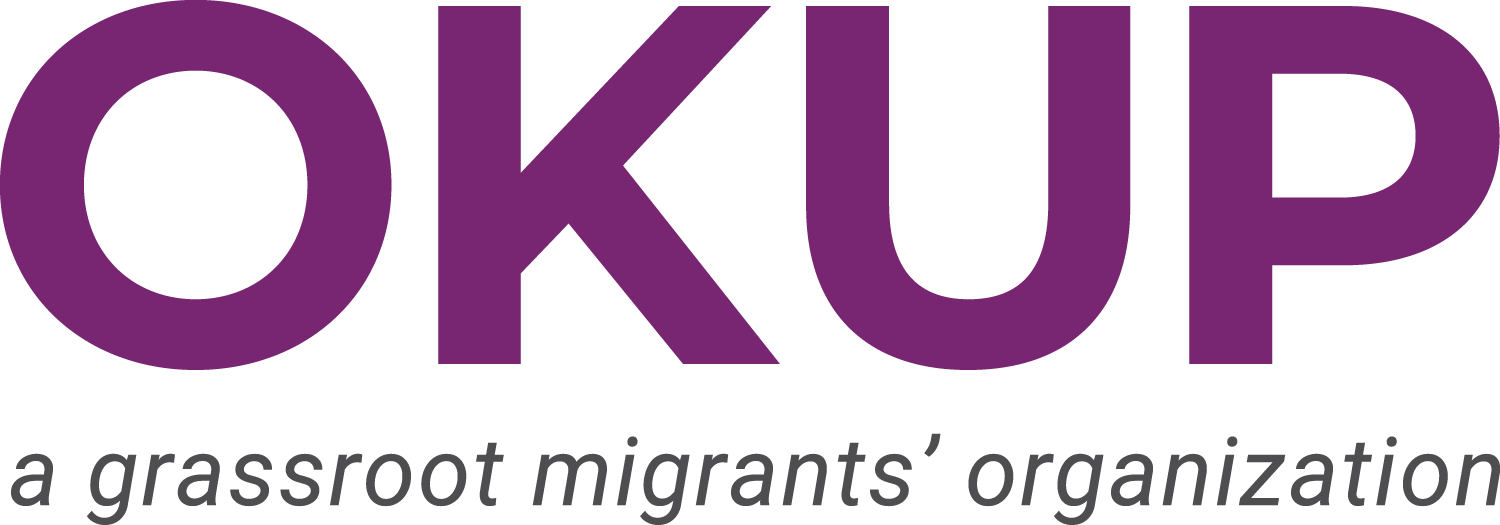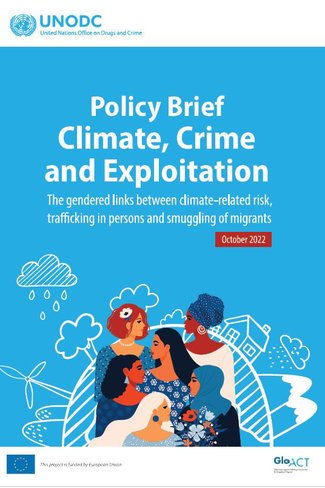Policy Brief: Climate Change and Exploitation. The Gendered Links Between Climate-related Risk, Trafficking in Persons and Smuggling of Migrants
2022
- Author
- United Nations Office on Drugs and Crime (UNODC) and Global Action to Prevent and Address Trafficking in Persons and the Smuggling of Migrants (GLO.ACT)
- World region
- South Asia
- Origin of migration
-
Bangladesh’s Khulna Division:
Bagerhat, Jashore, Khulna, and Satkhira - Area of transit
- No data available
- Destination of migration
- Bangladesh, India (West Bengal, Maharashtra, and New Delhi)
- Who is affected
- Girls, Women
- Type of climatic event
-
Rapid-onset event, Slow-onset event
Cyclones, irregular rain fall, saline intrusion. The effects of climate change and environmental degradation (e.g. pollution and biodiversity loss) motivate people to migrate and expose them to deceitful work opportunities.
- Type of migration/mobility
-
Cross-border, Immobility
Men migrate abroad for employment, while women stay back. Woman-headed household are often targeted by traffickers.
- Destination industry or sector
-
No data available
- Type of modern slavery
-
Human trafficking
Women are left behind when men migrate abroad for work. Woman-headed household are targeted by human traffickers. Women and girls are trafficked for forced commercial sexual exploitation. Traffickers increasingly using social media to target people.
- Link between climate change, migration and modern slavery
- Indirect
- Key vulnerability factors
-
Financial difficulties – exacerbated by climate change events – increase vulnerability to human trafficking. Traffickers target people on the move and those belonging to non-traditional family units in particular. Dependency on non-family members also increases vulnerability to human trafficking. The effects of climate change can strengthen patriarchal structures and make women and girls more vulnerable to human trafficking.
- Summary
-
This document looks at the impact of climate change on human trafficking from a gender perspective.
- Recommendations
-
This document advocates for further research. It presents ways to design effective human rights-centred responses and makes recommendations under five categories. Recommendations include: defining climate adaptation strategies that systematically address gender inequality and migration (which expose women and girls to human trafficking); ensuring that legislation and policies recognise environmental degradation as a driver of unsafe migration and climate change as a driver of internal and cross-border migration; and strengthening the financial resilience of communities in slow-onset context, which are still largely overlooked.



